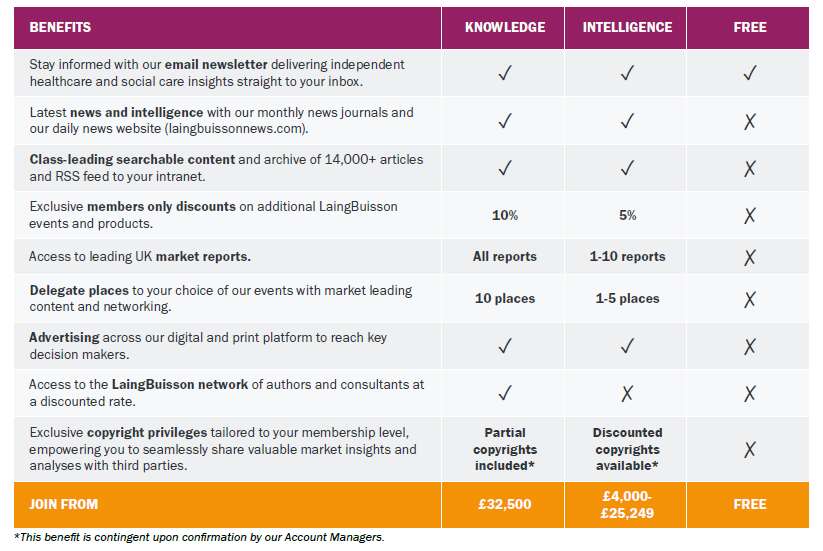Understanding health and care in a changing world
Many of us consider that we have a broad understanding of what the NHS and our care services provide. Throughout our lives, we will have had many touch points with the NHS and experience of social services, whether directly or through the experience of a loved-one. We will have formed opinions about what these services do and what they mean to us.
As consumers of health and care services, we do not have to look further than this. However, what lies behind the provision of these services is more complex.
At LaingBuisson, we provide market intelligence for the independent health and social care sector. Providing our clients with the information they need to make business decisions is core to what we do.
This is why we are supporting The King’s Fund with their early 2018 conferences ‘Partnership models in the NHS’ (6 February), and ‘Health and care explained: how the system works and how it is changing’ (7 March). The King’s Fund are thought leaders in issues relating to the NHS and health and social care policy. We are proud to be partnering with them because of the value of the insights to be gained for organisations working with the NHS and local government to provide health and care services.
Independent sector providers, be they service providers or advisors, play a key role in supporting NHS service provision and this support can range from the complete outsourcing of services, to bespoke consultancy projects. And as much as the commissioners of state-paid health and social care services need the support of independent sector experts for their delivery, those experts need to know how best to meet the required demand.
The way care is delivered in England is changing quickly. ‘Integration’ is the buzz word of the day and understanding what this will mean in terms of relationship-building and working with the NHS, money flows, the role of general practice, and how commissioning and contracting work is vital to any private or third sector provider or advisor working in this field. Having a strong grasp of the current NHS reforms, together with the new string of acronyms this has generated, is also fundamental. These matters will be discussed at ‘Health and care explained: how the system works and how it is changing’ on 7 March.
Successful partnerships are not, however, simply about understanding current requirements. There is a plethora of partnerships models in the NHS and knowing as a provider or advisor which you are best suited to fulfil is key to building enduring contracting relationships. Partnerships should provide benefits for all parties and getting these right is important to ensuring the right services are delivered efficiently and effectively. How to create new ways of delivering better services for patients will be discussed at ‘Partnership models in the NHS’ on 6 February.
Moving beyond transactional relationships to proper partnership working is central to the success of the current NHS reforms. This is a great opportunity to make a real difference to the future of health and social care in England – and not one to be missed.







